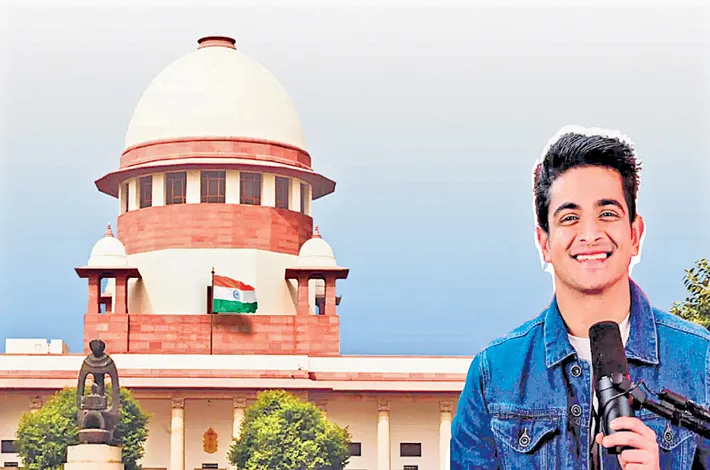SC asks Centre to regulate content on Social Media
19-02-2025 12:45:33 AM

The controversy surrounding Allahabadia's remarks led to significant public backlash and legal action. The Supreme Court described the incident as "dirty and perverted," emphasizing that such behavior must be condemned
metro india news I hyderabad
The Supreme Court of India has directed the union government to consider regulating obscene content on YouTube and other social media platforms. This directive came while granting interim bail to Ranveer Allahabadia, a YouTuber known for his controversial remarks.
Ranveer Allahabadia's comments on parents and sex during his stand-up show 'India's Got Latent' on YouTube sparked widespread criticism. The Supreme Court expressed strong disapproval, stating that his words would make daughters, sisters, parents, and society feel ashamed, showcasing a "perverted mind".
The court granted Allahabadia interim protection from coercive action in FIRs lodged against his comments. However, he must deposit his passport at the Thane police station and seek prior court permission before leaving the country. The controversy surrounding Allahabadia's remarks led to significant public backlash and legal action. The Supreme Court described the incident as "dirty and perverted," emphasizing that such behavior must be condemned.
Justice Surya Kant, who was on the bench along with Justice N Kotiswar Singh, questioned Allahabadia's intentions, asking, "The words you have used will make daughters, sisters, parents, and even the society feel ashamed. It shows a perverted mind. If this is not obscenity, what is it? Why should we quash or club the FIRs against you?"
The court's observations highlighted the need for regulation of obscene content on social media platforms. The Supreme Court asked the union government if it plans to impose a legal regime to regulate obscene content on social media platforms, which they believe has become "a complete nuisance".
The government's response to this query is eagerly awaited, as it could have significant implications for the regulation of online content in India. The Supreme Court's directive is a clear indication that the judiciary is taking a strong stance against obscene content and its impact on society.
In recent years, there has been a growing concern about the spread of obscene content on social media platforms. The ease with which such content can be shared and accessed has made it a major challenge for law enforcement agencies and regulatory bodies.
Some observers say that the The Supreme Court's directive is a welcome step in this direction, as it recognizes the need for regulation of obscene content on social media platforms. The government must now take concrete steps to address this issue and ensure that social media platforms are not used to spread obscene content.
The case against Allahabadia is a classic example of how social media platforms can be used to spread obscene content. The YouTuber's comments were widely shared and sparked widespread outrage, highlighting the need for regulation of online content, they argue. But some critics say that the Centre may well take the SC Directive and impose indirect censorship on the media which may finally lead to impact freedom of speech of the citizens.








